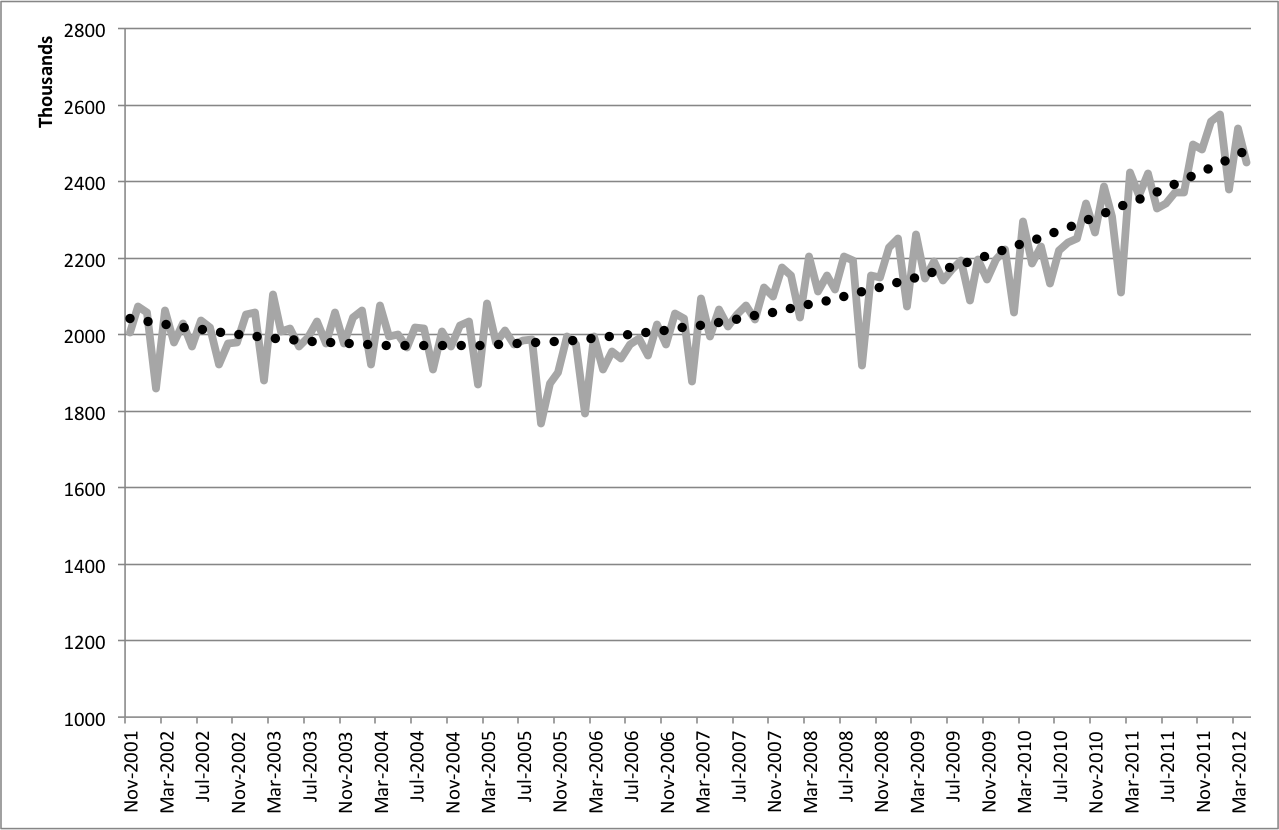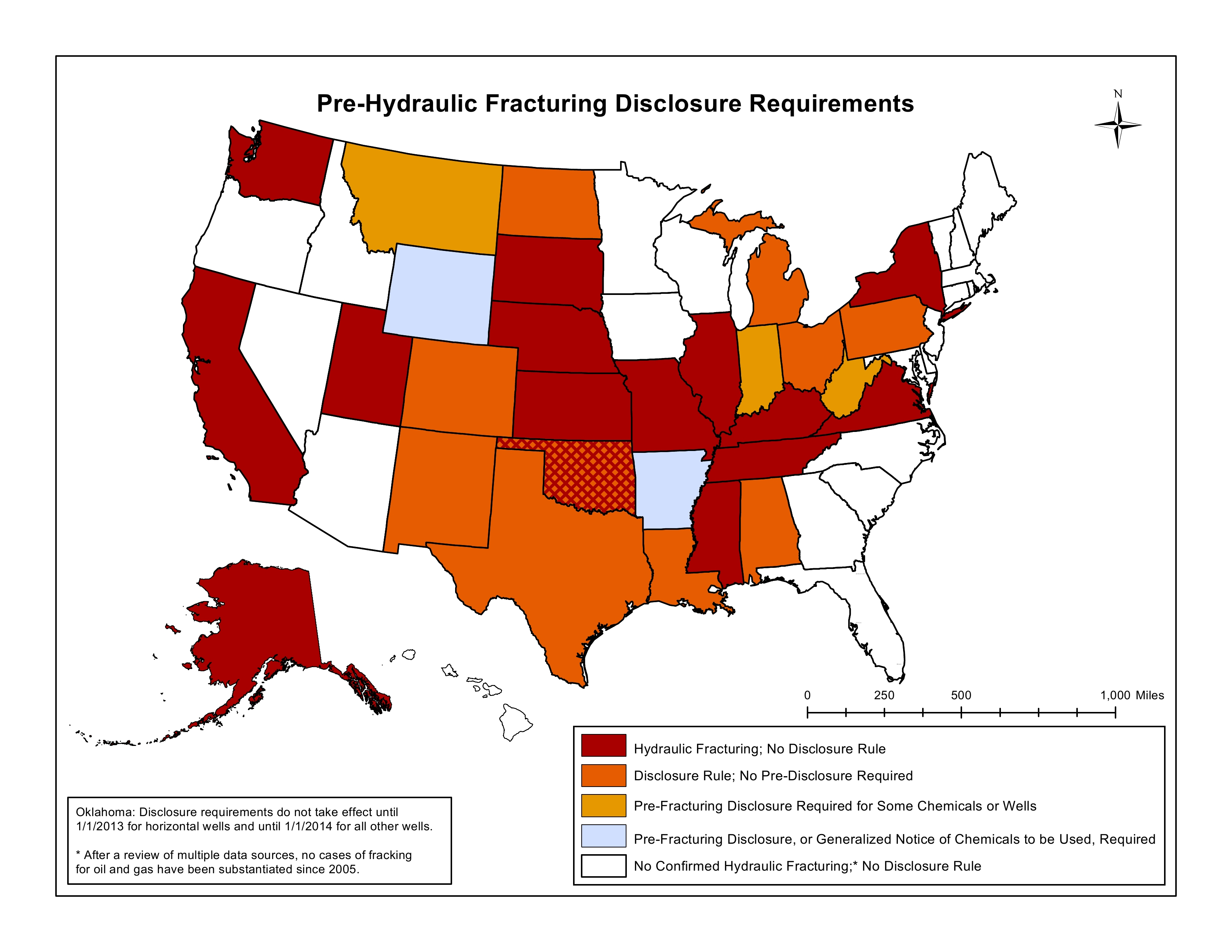We often use the word “exploded” when referring to the growth of fracking. Not out of any sense of grim irony, but just because the industry is expanding rapidly as more and more natural gas is produced through hydrofracturing. (The technological breakthrough behind the boom is well-described in this New Yorker article, which you should certainly read.)
Since the middle of 2006, the amount of natural gas produced each month has consistently trended higher.
A large part of why this is happening is that the fracking companies are often way out ahead of jurisdictional laws. It’s a new process with new demand, testing how municipalities and states deal with what’s acceptable and what isn’t. The faster fracking companies put holes in the ground, the harder it is to put the cork back in.
The Natural Resources Defense Council looked at how states are dealing with fracking regulation — particularly in regards to the fluid used as part of the process. From an overview of its findings:
- The majority of states with fracking have no disclosure rules [regarding fracking processes] at all.
- Every state that does have rules fails to require disclosure of many important aspects of fracking.
- Most states with rules allow companies to exploit “trade secret” exemptions to prevent disclosure of any information the company decides is confidential.
In the map below, states colored dark yellow or light blue require some disclosure of fracking chemicals prior to drilling. There are five of them. All of the other colored states allow fracking without prior disclosure of what is used in the process.
Pennsylvania, which requires disclosure after the fact, also has a law on the books that makes it spectacularly easy for companies to start drilling. As described by Bloomberg Businessweek, the law includes “requirements that drilling, waste pits and pipelines be allowed in every zoning district, including residential districts, as long as certain buffers are observed.” Yes, even in residential areas.
Happily, an appellate court panel struck those rules down yesterday.
The state Commonwealth Court ruled 4-3 in a decision released Thursday that the limitations in the so-called Act 13 violated the state constitution. The opinion’s author, President Judge Dan Pellegrini, said the provisions upended the municipal zoning rules that had previously been followed by other property owners, unfairly exposing them to harm. …
“This is a wonderful victory for local government, a recognition that local municipal officials have a valid interest in protecting the property of their citizens,” said Jordan Yeager, one of the lawyers who argued on behalf of the municipalities.
The state plans to appeal.

It is not, however, crack. (Photo by Ed Yourdon.)
Tomorrow, a large contingent of activists arrives in Washington, D.C., for a rally dubbed, “Stop the Frack Attack.” (Politicians are suckers for clever names.) (Also, if you’re going? They recommend you bring a banjo. This also serves as warning to those who might otherwise be in the area tomorrow.)
Despite signs that natural gas prices are rising, the process isn’t going away anytime soon. Given the proclivities of the current Congress, we’re unlikely to see national efforts to improve disclosure, let alone stop fracking altogether. On a local and state level, there’s much more opportunity for smarter regulation and fuller disclosure.
Let’s hope it can happen without banjo accompaniment.




